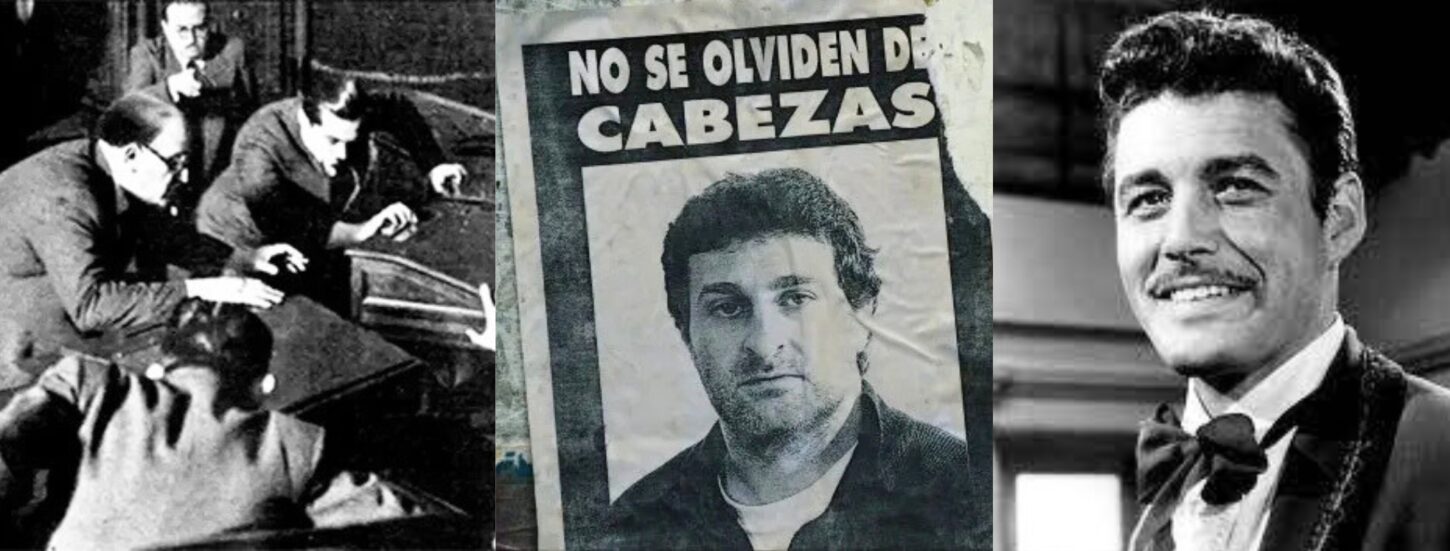Buenos Aires, a city rich in history, culture, and vibrant life, has also been the setting for some of the most infamous and tragic events in Argentina’s history. From political assassinations to the untimely deaths of beloved celebrities, these cases remain etched in the collective memory of the city. Below, we delve into some of the most notable cases of suicides and murders that have left an indelible mark on Buenos Aires and its people.
The Senate Assassination of 1935: The Murder of Enzo Bordabehere
On July 23, 1935, a shocking event unfolded in the Argentine Senate during a heated debate. Enzo Bordabehere, a senator from the Progressive Democratic Party, was assassinated in plain view during a session in the Senate Chamber. The assassin, Ramón Valdés Cora, acted as part of a political conspiracy tied to corruption scandals within the government. Bordabehere was not the original target; his assassination was an accident as he tried to defend his ally, Lisandro de la Torre, a fiery politician known as “The Tribune of the People.” This brazen act of political violence shocked the nation, and the tragic event became a symbol of political instability and corruption in Argentina during the 1930s.
The Suicide of Guy Williams, the Beloved Actor of “Zorro”
Guy Williams, the American actor famous for his portrayal of Zorro in the 1950s Disney series, spent his later years in Buenos Aires, where he enjoyed a loyal fan base. Tragically, Williams was found dead in his apartment in 1989, having passed away from a heart attack. However, rumors and theories about suicide have lingered in the public imagination, fueled by his reclusive lifestyle and the melancholic tone of his final days. Williams had retired from Hollywood and lived alone in the San Telmo neighborhood. His death, though officially declared natural, remains one of the saddest chapters in the city’s cultural history, as fans mourned the loss of a man who had brought so much joy to their lives.

The Mysterious Death of José Luis Cabezas
In January 1997, the shocking murder of photojournalist José Luis Cabezas rocked Argentina. Cabezas was abducted, tortured, and killed while covering the corruption scandals involving businessman Alfredo Yabrán. His body was found inside a burned car near Pinamar, a popular beach resort. Cabezas’ murder symbolized the dangerous intersections of power, corruption, and journalism in Argentina. The phrase “No se olviden de Cabezas” (“Don’t forget Cabezas”) became a rallying cry for press freedom and justice, leading to significant reforms in the country’s legal and political landscape.
The Crime of María Marta García Belsunce
One of the most infamous murder cases in recent Argentine history is the death of María Marta García Belsunce in 2002. Initially declared an accidental death due to a fall in her bathtub, it was later revealed that María Marta had been shot five times in the head. The investigation exposed a web of lies, cover-ups, and family intrigue. Her husband, Carlos Carrascosa, was convicted and later acquitted, while other family members and associates faced legal scrutiny. The case remains controversial and has inspired books, documentaries, and TV adaptations, highlighting the deep divisions in Argentine society over wealth, privilege, and justice.

Liam Payne: The Tragic Loss of a Music Icon
The Death of Evita’s “Shadow,” Eva Perón’s Bodyguard
During the chaotic political landscape of the 1950s, a mysterious case emerged involving Juan Duarte, Eva Perón’s brother and confidant. Officially declared a suicide, Duarte’s death in 1953 has been surrounded by conspiracy theories, with many believing it was an orchestrated murder due to his knowledge of political secrets and his role in managing Evita’s finances. His death added another layer of intrigue to the already dramatic life of Eva Perón, whose legacy continues to captivate Argentines.
Mysterious death of Sivak
Martín Sivak, a prominent Argentine journalist and writer, tragically passed away on October 22, 2024, in a traffic accident in Buenos Aires. Known for influential works like El salto de papá and his incisive political analysis, his death leaves a void in journalism and literature. Sivak was working on a new book about democracy in Latin America at the time of his passing. His legacy includes a unique style blending personal narrative with deep analysis. The literary and political communities have expressed sorrow over the loss of such a critical voice. The accident investigation is ongoing to determine further details.
Buenos Aires, a city of tango, resilience, and passion, has also been the stage for some of the most chilling and tragic episodes in Argentina’s history. These cases of murder and suicide not only highlight the personal struggles and political tensions of their times but also reflect the complex fabric of a city that continues to fascinate and inspire. Through remembering these stories, Buenos Aires pays homage to those lost and continues its journey of healing and growth.


Leave a Reply